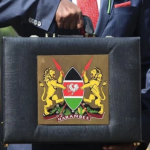“Public officers have no right to privacy. A public official cannot complain if people circulate his number…the President too.” This is according to Lawyer Paul Mwangi.
The lawyer says that a lot of information about the lives of public officers are public, arguing that therefore, they cannot sue if someone shared their contacts.
“In more developed nations like in America you can’t even sue for defamation; you would have to prove that the person is maliciously injuring you. But the fact that I said something defamatory to you, you can’t go to court. And that gives people the space to criticise public officials,” the lawyer said in an interview with Citizen TV.
The Office of the Data Protection Commissioner (ODPC) has issued a warning against the “unauthorised sharing of personal data such as names and phone numbers.”
This advisory follows the circulation of contact details of some leaders, including MPs and Senators, and their families online during the ongoing debate on the Finance Bill, 2024.
“This practice has been happening without the affected citizens consent contrary to the provisions of Article 31 of the Constitution of Kenya, the Data Protection Act, 2019 and its attendant regulations,’ she said, advising members of the public to seize from sharing personal information, as it could lead to prosecution.
But according to Lawyer Paul Mwangi, young Kenyans have resorted to sharing the contacts of their MPs as a means of protesting against a bill they feel is infringing on their lives negatively.
“The Gen Zs have gone a further step because those who offend them, they’re beginning to track them down to their homes and families and expose them.”



